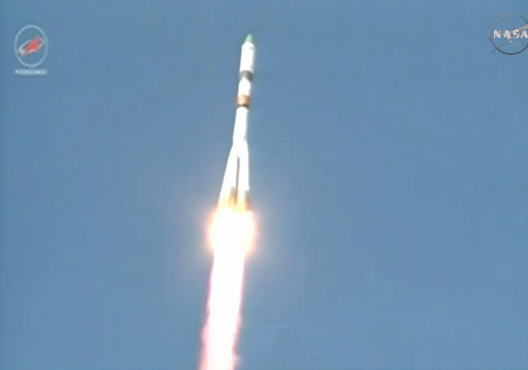Russian supply spacecraft out of control, docking with ISS put off

The Russian Progress supply ship loaded with almost three tonnes of supplies and equipment bound for the International Space Station has spun out of control shortly after reaching orbit on 28 April.
Russian space agency Roscosmos has not been able to regain control during the four passings over Russian ground stations.
The loss of the ship will cut into the ISS's reserves, already dropping after the failure of a US cargo ship last October.
The robotic Progress 59 cargo ship seemed to have suffered a serious malfunction shortly after launch and Russian flight controllers have abandoned plans to attempt to dock the cargo ship with the ISS on 30 April.
Nasa spokesman Rob Navis said that the docking is now "indefinitely postponed".
The Progress was loaded with 2700kg of equipment and supplies, including 880kg of propellant, 50kg of oxygen, 420kg of water and 1419kg of dry cargo, including food and clothing for the station crew.
If it cannot be restored to normal operation, it eventually will re-enter the atmosphere and burn up.
The Progress 59 was launched atop a Russian Soyuz rocket from Baikonur Cosmodrome in Kazakhstan early on Tuesday. Immediately after spacecraft separation, a series of telemetry problems were detected, said Navis.
No confirmation of navigational antenna deployment or of the pressurisation of the system for the propulsion system on the spacecraft was received. Telemetry indicating solar array deployment apparently was the last data received from the spacecraft.
Attempts by Roscosmos to regain control of Progress 59 as the spacecraft made four orbits around Earth met with no success.
The Progress spacecraft are disposable robotic cargo ships that have been providing supplies to the ISS since 2000.
Unlike the Soyuz capsules that have a crew capsule, the unmanned Progress carries a propellant tanker for use in boosting the space station's orbit.
Robotic ships from Japan and Europe also run supplies besides commercial spacecraft from SpaceX and Orbital Sciences Corp.
© Copyright IBTimes 2025. All rights reserved.





















